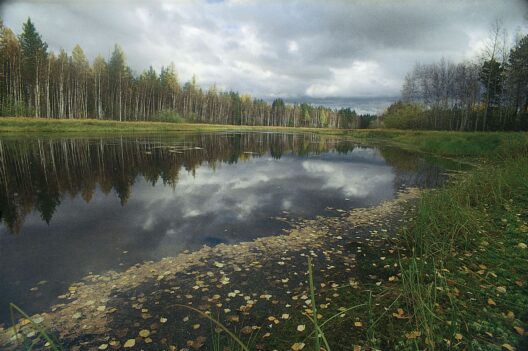In a world filled with incessant noise, how often do we pause to consider the sound energy we generate and consume? This leads us to an intriguing challenge: can we conserve sound energy while still enjoying the music of life? It is an ironic, yet vital, pursuit that aligns with the broader goal of energy conservation in our environment.
Sound energy, though often overlooked, plays a significant role in how we interact with our surroundings. Each hum of machinery, chatter in an office, or the gentle strumming of a guitar contributes to our auditory landscape. However, conserving sound energy is not about cutting out sound completely—rather, it is about being mindful of how we generate sound and finding the balance between a vibrant life and a sustainable one.
To tackle this concept effectively, let’s delve into various approaches and techniques that not only conserve energy but also promote a quieter, more tranquil environment. This exploration will encompass practical tips, innovative technologies, and even cultural considerations that highlight the importance of sound energy conservation.
Understanding Sound Energy
Sound energy is produced by vibrating objects, and it travels through various mediums in waves. The significance of sound energy extends beyond mere auditory perception; it is intrinsically linked to our physical environment. Every sound contributes to the acoustic ecology of a space, influencing everything from wildlife behavior in natural habitats to our psychological comfort in urban settings.
Reduce Noise Pollution
One of the most straightforward ways to conserve sound energy is to reduce noise pollution. Inefficient machinery, loud vehicles, and unnecessary loud conversations can all contribute to a cacophony of sound that squanders energy and disrupts ecosystems.
- Choose Silent Appliances: Opt for appliances and tools that are designed to operate quietly. Look for energy-efficient models that are specifically advertised as “quiet” to minimize sound production.
- Automate Noise-Makers: If you have machinery operating during off-peak hours, consider automating their use with timers. This not only conserves sound energy but also abates disturbances to the surrounding area.
Implement Sound Absorption Techniques
Another effective method to conserve sound energy is through the incorporation of sound-absorbing materials. These materials help to dampen noise transmission, effectively reducing overall sound levels in a space.
- Use Acoustic Panels: Installing acoustic panels in offices, restaurants, or homes can significantly minimize the reverberation of sound, creating a more serene environment.
- Enhance Natural Sound Barriers: Utilize trees, shrubs, and other natural features to absorb sound waves, particularly during construction projects or in urban areas.
Practice Mindful Consumption
Mindfulness in our consumption patterns can extend beyond physical goods to include our use of sound. By being considerate of our auditory output, we can help lower sound energy expenditures.
- Limit Background Noise: Whether it’s a television blaring or music playing in the background, consciously controlling these noise sources can lead to significant reductions in overall sound energy use.
- Engage in Quiet Activities: Substitute noise-generating activities with quieter options, such as reading, meditation, or yoga. These practices not only conserve sound energy but also promote mental clarity and relaxation.
Innovate with Technology
Advancements in technology provide numerous opportunities to conserve sound energy. Smart home devices, for instance, allow users to monitor noise levels and adjust settings for optimal energy conservation.
- Smart Thermostats: These devices help manage heating and cooling systems efficiently, often equipped with quiet modes to minimize operational noise.
- Noise-Cancelling Technology: Investing in noise-cancelling headphones or devices can not only enhance personal comfort but also encourage lower sound levels in shared spaces.
Cultivate a Quiet Culture
Societal change can play a pivotal role in sound energy conservation. Initiatives aimed at reducing noise pollution can reshape community standards and practices.
- Start a Quiet Hour: Encourage local businesses to participate in a designated quiet hour, where they minimize noise production to foster a calm atmosphere.
- Educational Workshops: Promote workshops that focus on the importance of sound conservation. These could cover topics such as the detrimental effects of noise pollution and practical strategies for reducing sound levels.
Engage with Nature
Nature often provides a tranquil alternative to the barrage of man-made sounds. Engaging with natural environments can help us appreciate the importance of conserving sound energy.
- Nature Walks: Spend time in parks, forests, or lakesides to experience the calming sounds of nature, which can recalibrate our relationship with sound and energy.
- Wildlife Observation: Observe how wildlife responds to sound energy. This can foster a deeper understanding of how sound habitat conservation contributes to ecological balance.
Conclusion: A Challenge to You
As we reflect on the various strategies to conserve sound energy, it becomes evident that each individual plays a critical role in this endeavor. The challenge remains: can you imagine a world where sound energy is utilized judiciously and harmoniously? By embracing mindful sound practices in our daily lives and advocating for quiet environments, we can contribute to a sustainable future. Join the movement to conserve sound energy, and let the beautiful sounds of nature echo through our lives—quietly and sustainably.







